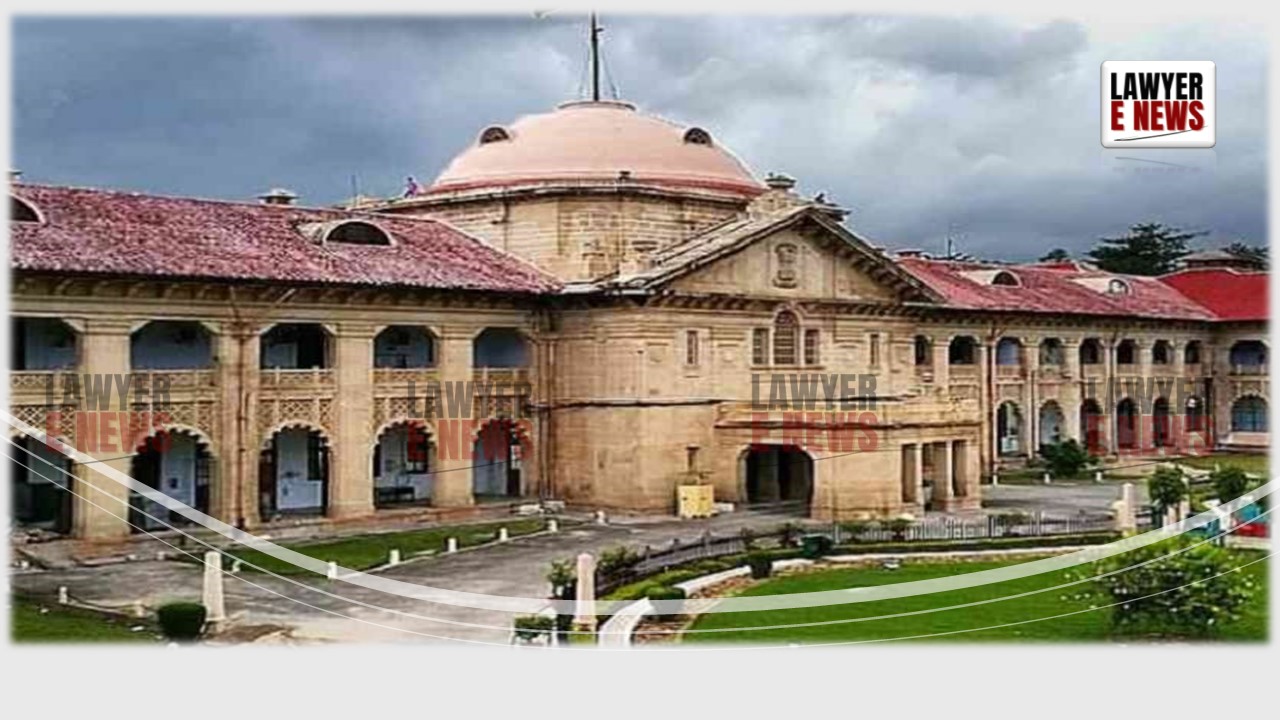-
by Admin
15 February 2026 5:35 AM



In a recent judgement, the Allahabad High Court delivered a crucial verdict in State of UP and 2 Others v. Santu Prasad Chaudhary and 9 Others, examining whether teachers appointed before the implementation of the 1978 educational qualification rules could be derecognized for not meeting those standards at the time of their appointment. The court held that appointments made before the enforcement of the 1978 rules are not rendered illegal by the subsequent imposition of those standards. It partially allowed the State's appeal against a previous order, modifying it to ensure fair assessment of the petitioners' entitlement to salary arrears.
The respondents, serving at Lal Bahadur Shastri Purwa Madhyamik Vidyalaya, challenged an order by the Director of Education (Basic) U.P., dated 12.09.2012, which rejected their representation and ceased recognition of their services on the grounds that they did not meet the qualifications under the U.P. Junior High School (Recruitment and Conditions of Service of Teachers) Rules, 1978, and U.P. Recognized Basic Schools (Ministerial Staff and Group 'D' Employees) Rules, 1984. They argued that their appointments dated back to 1977, prior to these rules, and thus should not be invalidated retrospectively.
The main legal question was whether teachers appointed before the 1978 rules came into force could be deemed illegal if they later acquired the necessary qualifications. The State contended that the appointments were illegal as they were made when the teachers were untrained, contravening the 1978 and 1984 rules. The petitioners, however, argued that their appointments were valid when made and that they later acquired the necessary qualifications, which should retroactively legitimize their appointments.
The court, presided over by Hon'ble Mahesh Chandra Tripathi J. and Hon'ble Prashant Kumar J., analyzed the legislative history and the rules governing teacher qualifications. It noted that prior to the 1978 Rules, there were no specific qualifications required for appointments in boys' junior high schools. The court found that:
Pre-1978 Appointments: Before the 1978 Rules, the appointment of untrained teachers was permissible, and such appointments were not subject to the qualifications introduced later. The 1978 Rules did not have retrospective application, so appointments made before their enforcement could not be invalidated on the basis of these later standards.
Training as an Evolving Requirement: The court highlighted that while training became an essential qualification under the 1978 Rules, appointments made prior to these rules were lawful if they complied with the law at the time. The court cited Rikh Pal Singh v. District Basic Education Board Allahabad and other precedents, affirming that an untrained teacher appointed before the 1978 Rules could not be retroactively deemed ineligible.
Irregular vs. Illegal Appointments: Drawing on Ram Sarup v. State of Haryana & Ors. and Dr. M.S. Mudhol & Anr. v. S.D. Halegkar & Ors., the court distinguished between irregular and illegal appointments, emphasizing that appointments not meeting later qualifications were merely irregular if the necessary qualifications were obtained subsequently. This meant the petitioners’ appointments were irregular, not illegal, especially as they later acquired the required training.
Recognition and Financial Approval: The court observed that the institution received temporary recognition in 1980, permanent recognition in 1984, and was included in the grant-in-aid list in 2007. Financial approval was granted, acknowledging the teachers’ roles in the institution. Therefore, it found the State's objection regarding the applicability of the 1978 Rules at the initial stage of engagement to be unsustainable, as the teachers' continuous service had been recognized by various authorities over the years.
The Allahabad High Court modified the earlier order by the Single Judge. It approved the finding that the teachers were entitled to be recognized as permanent employees but remanded the issue of salary arrears back to the authorities to ascertain if the teachers worked from July 2012 until their superannuation. It upheld the principle of 'no work no pay' for this period, meaning the teachers would only receive arrears if they actually rendered services during this time. The court clarified that the lack of training at the initial stage of appointment did not render the engagement illegal, especially when the qualifications were later met.
Date of Decision: September 12, 2024
State of UP and 2 Others v. Santu Prasad Chaudhary and 9 Others
